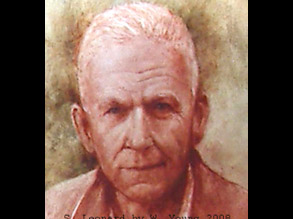Request Information
Ready to find out what MSU Denver can do for you? We’ve got you covered.
 If you want to talk history, talk to Stephen Leonard. If you want to talk MSU Denver history, talk to Stephen Leonard. Either way, he’s got you covered because he’s been a history professor here since August of 1966.
If you want to talk history, talk to Stephen Leonard. If you want to talk MSU Denver history, talk to Stephen Leonard. Either way, he’s got you covered because he’s been a history professor here since August of 1966.
“Oddly enough, I remember my first day,” said Leonard, who has first-hand knowledge of the scattered nature of the then-College’s early days. “I had to go to a faculty meeting in the basement of the Forum Building at 14th and Cherokee, the administration building for the College at the time. I also suspect I hold the mind-numbing record of having attended more graduations than any other faculty member – all except, I think, six of them.”
And he recalls the occasional large class sizes that illustrated the high demand for an MSU Denver education. “Once I taught more than a hundred students in a room with horrible acoustics,” he said. “When I asked for a public address system, my boss suggested that I project my voice.”
Teaching history was a natural fit for Leonard, who says he’s liked it since he was in high school and he sees it as a tool that can help identify and repair what’s broken. “History gives us a good clue as to why things are the way they are, and if you want to fix them you need to know how they got that way,” he said.
So why has he stayed so long?
“The students and faculty have always treated me kindly, and because I find it rewarding.”
He admits that over the years his approach to teaching has shifted from tough to, well, not so tough.
“When I began I was rather rigorous and traditional. Over time I became more relaxed and sensible.”
When Leonard isn’t teaching, he’s writing – a lot. He’s authored or co-authored half a dozen books. One of them, “Trials and Triumphs,” a history of the depression in 1930s Colorado, won several awards, and another, “Lynching in Colorado, 1859-1919,” was well received in the scholarly community. His book “Colorado: A History of the Centennial State” is a popular college-level textbook.
Besides leaving behind the written word, he says he hopes what he’s taught in the classroom stays with the many thousands of students he’s lectured over the years. “I hope they’ve gotten an appreciation for history and that they may remember a little of what they’ve learned,” he said.
And he adds that if he could leave one nugget about the importance of history it would be this: “Without knowledge of the past we won’t have much of a future.”
As for plans for retirement, he has none. “I think I’ll keep teaching for a time. I’ve gotten used to it.”